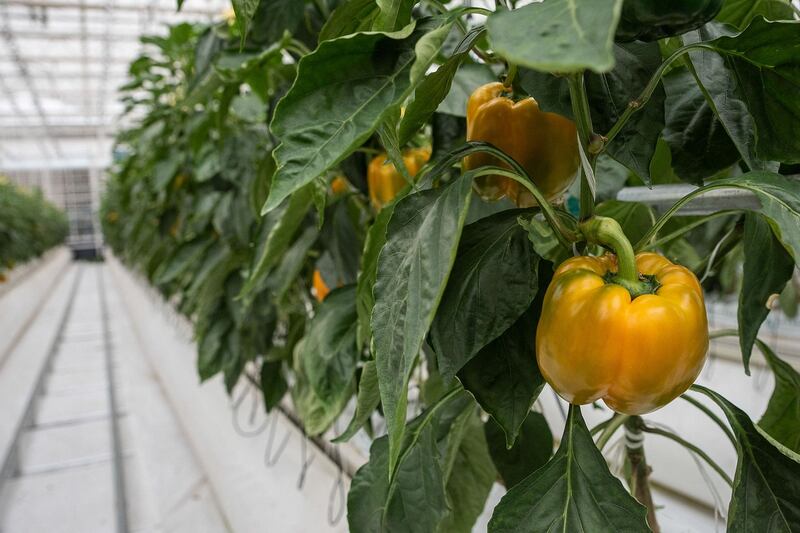China's propaganda machine has been scrambling to soothe public anger amid reports that local "agricultural management" officials threatened to uproot backyard fruit and vegetable plots as part of a rural "beautification" campaign.
"Due to the need to create a civilized environment, the planting of climbing vegetables like beans or melons and squashes in front and backyards is strictly forbidden," a notice placed in a village near the northern city of Xian dated April 1 said.
"That includes cucumbers, tomatoes, loofahs, pumpkins, zucchini, etc," said the notice, which caused an outcry after it was photographed and posted by a social media user from the village.
"The village committee will be sending personnel to carry out spot checks, and to destroy any [forbidden crops]," said the notice, which appeared around the time that most farmers and gardeners are planting beans and melons in China, just after the April 5 grave-sweeping festival of Qingming.
Within hours, the story had become one of the hottest searches on the Twitter-like platform Sina Weibo, Sina's news site reported – and prompted a rapid climbdown from the committee in charge of Han village in Huyi, a semi-rural suburb of Xian.
"The village cadres issued such inappropriate proposals because of the urgency to fulfill their personal management targets," Sina's news report said.
"The sub-district [in charge of Han village] has asked the village committee to correct the inappropriate proposals and explain to the villagers in a timely manner," it said. "It has also criticized and educated the relevant village officials."
New breed of enforcer?
By April 15, the Ministry of Agriculture had weighed in with a lengthy question-and-answer video warning its enforcement officials that "nothing can be done without legal authorization."
It wasn’t clear if similar notices were posted in other areas, but the fact that the agricultural ministry issued an explainer and warned local officials not to overstep suggests it fears the issue could be widespread.
The public uproar comes amid simmering public anger over the violent enforcement of lockdowns, mass quarantine orders and brutal culling of family pets during three years of COVID-19 restrictions.

The report also sparked concern online that a new breed of Chinese law enforcement official – the agricultural management officer – would soon be following the example of their widely-hated city-dwelling counterparts, the chengguan , who are frequently filmed beating up street hawkers in the name of "urban management."
According to late former Communist Party aide Bao Tong, the chengguan form part of ever-widening state control of every aspect of people's lives under the authoritarian model of government seen in China since the 1989 Tiananmen massacre.
Those controls are implemented on the ground by a bewildering array of different enforcement personnel, ranging from retired volunteers in red armbands, through chengguan to traffic cops, riot police, public security officers, People's Armed Police and plainclothes state security police, as well as the PPE-clad "white guard" enforcers of the zero-COVID policy, which ended in December.
‘Layers of party control’
The proliferation hasn't slowed under supreme party leader Xi Jinping, whose administration recently conferred law-enforcement powers on neighborhood committees and set up local militias to boost "stability maintenance," a system of law enforcement aimed at forestalling dissent and nipping protest in the bud.
"The [1989] massacre paved the way for countless layers of party control, from national government to the urban police, or chengguan, and the auxiliary police, to ordinary people and dissidents governed as 'special households,'" and for the mantra 'Follow the party and prosper: oppose it and die' to be encoded into the minds of all Chinese citizens," Bao wrote in a 2022 commentary for RFA's Mandarin Service.
Specific guidelines
According to the Ministry of Agriculture video, the job of agricultural management officers is to " stabilize grain supply" as part of a nationwide and comprehensive food security policy in 2023, which comes as Beijing revamps a Mao-era system of food distribution that analysts said could provide a network of emergency logistics in the event of war.
They should also concern themselves with which seeds, pesticides, veterinary drugs, feed and agricultural machinery are used by farmers, as well as enforcing animal and plant quarantine and disease prevention measures, and managing fisheries in China's lakes and rivers, it said.
"The duty and mission of the agricultural law enforcement team is mainly to crack down on illegal activities like counterfeit and shoddy seeds, pesticides, and veterinary drugs," the video said.
"Prohibiting the planting of melons and other vegetables in people's gardens don't fall within [their remit]," it said, calling for "more tolerant and prudent" approach to "minor violations by small farmers, farmers' cooperatives and small agribusinesses."
Mao-era nightmare
Current affairs commentator Zhang Jianping, who grew up in the countryside, said local agricultural officials were notorious during the Mao era for micro-managing every aspect of people's lives.
"They would clamp down on any farmer who planted a few vegetables or kept chickens," Zhang said. "Now it seems from reports in various places as if they're up to their old tricks again, oppressing ordinary people."
Zhengzhou-based rights activist Jia Lingmin said the danger of such law enforcement teams was that they could easily start to operate as unaccountable, “kangaroo” courts.
"This kind of punishment of ordinary people is just like a kangaroo court, which is a serious violation of the Constitution," Jia said.
Recent official reports from the central province of Hubei showed that authorities had fined hundreds of people recently for burning stubble in the fields, in a province that already boasts more than 5,000 agricultural law enforcement officers.
Hubei resident Mao Shanchun said the Chinese government is constantly trying to tighten up its control over people's lives.
"[Where there is no independent judiciary], new institutions will emerge in a bid to strengthen social control," Mao said. "But it's ordinary people who pay the price."
Translated by Luisetta Mudie. Edited by Malcolm Foster.
